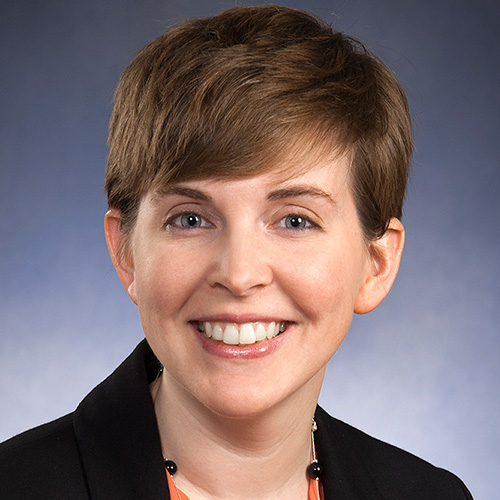3 minutes
Situational Outlook Questionnaire offers insight on the relationship between growth & development programs and employee engagement—and where your credit union can improve.
“One of the challenges with talent development is that it can be really hard to measure on an organizational impact scale,” said Jennifer Stangl at the most recent CUES Symposium in Hawaii.
Stangl, director of professional development at CUES, asked participants in her breakout session, “The Impact of Talent Development on Your Organizational Climate,” to stand up if they thought of talent development as an expense at their organizations. Nobody stood. She then asked participants to stand if they thought of talent development as an investment—nearly the whole room rose.
This is the correct mindset if you want to foster a healthy organizational climate—i.e., the employee experience, or how it feels to work at your credit union. “When you think of talent development as an investment, you recognize that it really has an impact on the organization, including the bottom line,” Stangl noted. Unfortunately, most organizations and industries “haven’t identified a financial statement line item that helps quantify the importance of talent development.”
In contrast, the impact of employee engagement is well documented. “Engaged employees are always looking for ways to become more productive and more efficient,” said Stangl. Engaged employees also have a positive impact on organizational goals, recruitment and commitment, individual development, the organization’s future leadership pipeline and member experience.
As such, credit unions and other businesses often try to measure and improve engagement through surveys—with limited success. Common examples of survey questions include:
- Do you have a friend at work? Do you like your colleagues?
- Are you thinking about leaving?
- Are you happy here?
- Do you like your boss?
“These questions don’t really dive into the root of what’s going on at the organization,” Stangl observed. For example, if someone doesn’t have a friend at work, addressing this at the organizational or even team level is difficult. Credit unions should instead ask questions that lead to action.
That’s where the Situational Outlook Questionnaire comes in. The SOQ presents data on staff perceptions of the current working environment. This offers the opportunity to compare the current state of your culture to your desired state and identify actions to maintain or improve it, she explained. It measures current climate using nine standard, research-based dimensions that impact employee engagement: challenge and involvement, trust and openness, playfulness and humor, idea-support, risk-taking, freedom, idea-time (time available for elaborating new ideas), conflict and debate.
CUES, through CUES Consulting, is able to offer a 10th important measure: “We have data now that demonstrates the impact talent development has on an organization,” said Stangl.
When analyzing the talent development data gathered from the questionnaire alongside the other nine dimensions, she reported, “we found the talent development measure strongly connected to four other measures”: challenge and involvement, trust and openness, idea-time and idea-support (innovation and growth mindset). “When talent development score was high, so were these. When talent development was low, so were these four.”
This connection can help inform the action-planning your credit union can take to support stronger talent development, explained Stangl, which in turn will impact challenge and involvement (engagement), trust and openness, idea-time and idea-support—and the overall climate and culture at your credit union.
CEOs can further sponsor talent development by making time to check in with human resources—and if HR doesn’t have a seat at your credit union’s strategic leadership table, they should, advised Stangl. Use their feedback to ensure talent development becomes a regular priority for your staff. For board members, this means including talent development in strategic planning and demonstrating your commitment to development by being part of a learning board.
Danielle Dyer is an editor at CUES.










